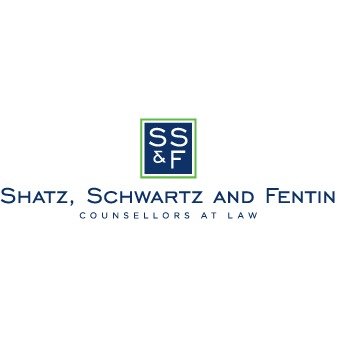Best Elder Abuse Law Lawyers in Northampton
Share your needs with us, get contacted by law firms.
Free. Takes 2 min.
List of the best lawyers in Northampton, United States
About Elder Abuse Law in Northampton, United States
Elder abuse law in Northampton, like in other parts of the United States, is designed to protect the elderly from various forms of abuse, including physical, emotional, financial, and neglect. The law seeks to ensure that older adults live in safety and dignity, free from mistreatment. Elder abuse laws encompass various statutes and regulations at both state and federal levels that address reporting mechanisms, protection orders, and penalties for offenders. In Northampton, these laws are enforced by multiple agencies working together to protect the rights and well-being of seniors.
Why You May Need a Lawyer
Legal assistance may be necessary in several situations involving elder abuse, such as:
- Suspected physical or psychological abuse by caregivers or family members.
- Cases of financial exploitation or fraud targeting elderly individuals.
- Instances of neglect in nursing homes or assisted living facilities.
- To navigate the complexities of reporting abuse and seeking protective measures.
- When there is a need to pursue legal action against perpetrators of abuse.
- Guidance on setting up powers of attorney or guardianship to protect a senior’s interests.
Local Laws Overview
Northampton's elder abuse laws are integrated within the broader legal framework of Massachusetts. Key aspects include:
- Reporting Requirements: Massachusetts requires certain professionals, including healthcare workers and social workers, to report suspected elder abuse.
- Protective Services: The state provides Adult Protective Services (APS) to investigate and address reports of abuse.
- Legal Penalties: Perpetrators of elder abuse can face severe legal consequences, including fines and imprisonment.
- Financial Protections: Laws are in place to safeguard against the financial exploitation of seniors, with strict penalties for violations.
Frequently Asked Questions
What is considered elder abuse?
Elder abuse includes physical, emotional, and financial abuse, as well as neglect and abandonment of older adults.
Who can report elder abuse?
Anyone can report suspected elder abuse, but certain professionals are mandated by law to report it in Massachusetts.
What should I do if I suspect elder abuse?
If you suspect elder abuse, it is crucial to report it to local authorities or Adult Protective Services immediately.
How are reports of abuse handled?
Reports are investigated by Adult Protective Services or similar agencies, which take steps to protect the elder and hold offenders accountable.
Can elder abuse occur in nursing homes?
Yes, elder abuse can occur in nursing homes. Facilities are subject to strict regulations, and violations can be reported to relevant authorities.
What legal actions can be taken against abusers?
Legal actions can include criminal charges, civil lawsuits, and protective orders to prevent further abuse.
How can seniors protect themselves from financial exploitation?
Seniors can protect themselves by setting up trusted financial arrangements, using direct deposit, and regularly reviewing their financial statements.
Is there legal aid available for victims of elder abuse?
There are legal aid organizations in Massachusetts that provide assistance to victims of elder abuse who cannot afford private legal services.
What are protective orders, and how can they help?
Protective orders are legal decrees that restrain abusers from contacting or approaching the victim, offering safety and peace of mind.
Are there warning signs of elder abuse I should be aware of?
Warning signs include unexplained injuries, sudden changes in financial status, withdrawal, and poor hygiene. It's essential to remain vigilant.
Additional Resources
For more information and assistance on elder abuse law, consider reaching out to these resources:
- Massachusetts Executive Office of Elder Affairs: Offers information and services to protect the rights of seniors.
- Adult Protective Services (APS): Provides crucial interventions and support for abuse cases.
- Legal Aid Organizations: These can offer free or low-cost legal services to those in need.
Next Steps
If you need legal assistance in elder abuse law, consider the following steps:
- Gather Information: Document any evidence of abuse, including photos, medical records, and financial statements.
- Contact Authorities: Report any suspected abuse to local law enforcement or Adult Protective Services.
- Consult a Lawyer: Seek legal advice from a lawyer specializing in elder law, who can guide you through your options.
- Seek Support: Utilize community resources, support groups, and counseling services for emotional and practical support.
Making informed decisions and taking prompt action can significantly impact the resolution of an elder abuse situation and the protection of the victim’s well-being.
Lawzana helps you find the best lawyers and law firms in Northampton through a curated and pre-screened list of qualified legal professionals. Our platform offers rankings and detailed profiles of attorneys and law firms, allowing you to compare based on practice areas, including Elder Abuse Law, experience, and client feedback.
Each profile includes a description of the firm's areas of practice, client reviews, team members and partners, year of establishment, spoken languages, office locations, contact information, social media presence, and any published articles or resources. Most firms on our platform speak English and are experienced in both local and international legal matters.
Get a quote from top-rated law firms in Northampton, United States — quickly, securely, and without unnecessary hassle.
Disclaimer:
The information provided on this page is for general informational purposes only and does not constitute legal advice. While we strive to ensure the accuracy and relevance of the content, legal information may change over time, and interpretations of the law can vary. You should always consult with a qualified legal professional for advice specific to your situation.
We disclaim all liability for actions taken or not taken based on the content of this page. If you believe any information is incorrect or outdated, please contact us, and we will review and update it where appropriate.








